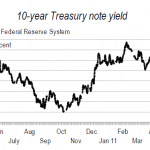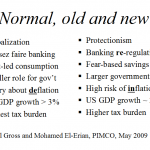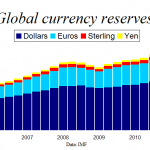
Interest rates were supposed to go up when the end of quantitative easing (printing money) came into focus. That was the gospel according to Pimco’s Bill Gross, who dumped all his Treasuries, who indeed went short the U.S. government-bond market. But as the chart shows, the benchmark rate on 10-year [continue reading . . . ]

